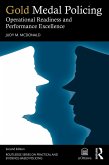
eBook, PDF
11. August 2023
Taylor & Francis
| Broschiertes Buch | 63,99 € | |
| eBook, ePUB | 41,95 € |

eBook, ePUB
11. August 2023
Taylor & Francis
Gebundenes Buch
Who Will Guard the Guardians?
11. August 2023
Routledge / Taylor & Francis
Ähnliche Artikel

eBook, PDF
17. Dezember 2024
Taylor & Francis




eBook, ePUB
17. Dezember 2024
Taylor & Francis


0,99 €
Sofort per Download lieferbar


Ähnlichkeitssuche: Fact®Finder von OMIKRON
